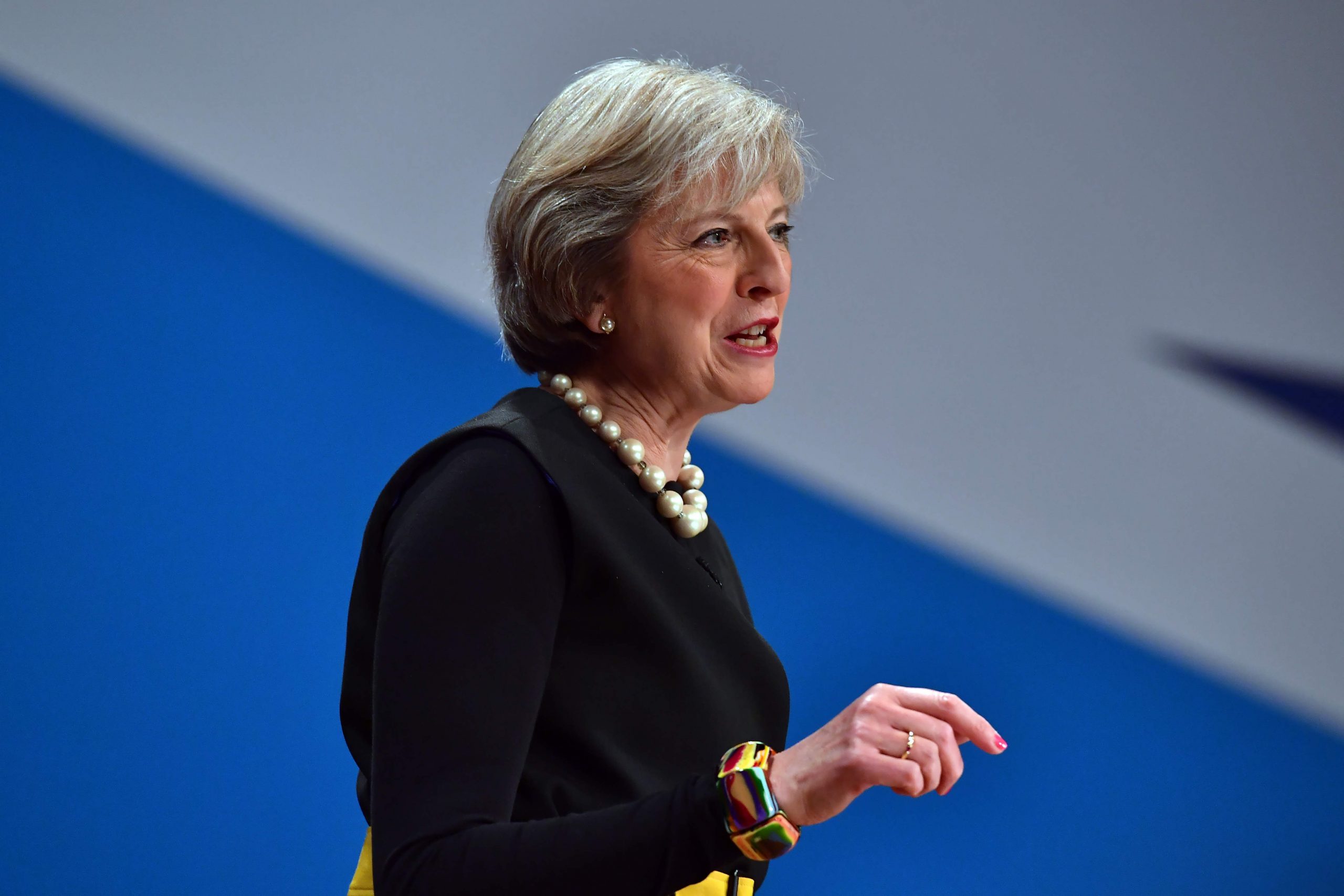
At the beginning of her first address to the Conservative conference, Theresa May flashed a smile at those watching above. She adores Tory activists and they adore her. After the strained relations of the Cameron years, Conservative members have got their party back. Every mention of EU withdrawal was raucously cheered, just as “socialism” was at Labour’s gathering.
Brexit was a dream born on the Conservatives’ fringes. Its proponents, such as Daniel Hannan and Douglas Carswell, were economic liberals and fiscal conservatives. The post-EU Britain they envisioned would tax less, spend less and borrow less.
But policy is not evolving in that direction. Brexit was once heralded by the right, and dreaded by the left, as an opportunity to cast off social legislation. International Development secretary Priti Patel said during the referendum: “If we could just halve the burden [of legislation]. . . we could deliver a £4.3bn boost to our economy and 60,000 new jobs.”
But far from reducing workers’ rights, May is intent on expanding them. David Cameron chose the venture capitalist Adrian Beecroft to lead a review of employment law. May has appointed the former Labour adviser Matthew Taylor. For the Prime Minister, the Leave vote was not merely a mandate to exit from the EU but to reshape domestic policy. Ideas such as worker representation on company boards, stricter controls on foreign takeovers and tougher limits on executive pay are designed to address the economic grievances which underlay the referendum result.
Philip Hammond is described as “dry as dust” by cabinet colleagues. But the Chancellor also exemplified this interventionist turn. He abandoned George Osborne’s budget surplus rule in order to borrow for investment. Though the former Chancellor frequently missed his targets he never did so for this explicit purpose. Hammond’s announcement is a greater concession to fiscal activism.The UK has not run a budget surplus since 2001-02. In this era of mediocre growth, it may never do so again.
The Conservatives’ more statist direction did not originate with May. Their 2015 manifesto opened with the Beveridgean declaration: “We have a plan for every stage of your life”. The living wage, the apprenticeship levy and the “sugar tax” all testified to Osborne’s interventionist instincts.
But a confluence of forces has accelerated this trend. May has long been more pragmatic than many of her doctrinaire colleagues. Her conservatism owes more to French Gaullists and German Christian Democrats than American Reaganites. Rather than the market, the state is revered as the vehicle for advancing national greatness.
The economic uncertainty triggered by the Leave vote has made greater interventionism unavoidable. Many fear that the process of withdrawal will progressively erode foreign investment and consumer spending. As during the financial crisis, it will fall to the state to act as a spender of last resort. Hammond’s declaration that he will take “whatever steps are necessary” to protect the economy from “turbulence” signalled as much. State aid for distressed firms and part-nationalisations could follow. The emergency interventions that followed the 2008 crash ended the taboo over activist government.
May’s signal that the UK will leave the single market, in order to control the free movement of people, has intensified the pre-existing tremors. When Britain withdraws from the EU by March 2019 it will likely do so without having secured a new trade agreement (as Whitehall has warned the Prime Minister). Under this scenario, unless it negotiates temporary membership of the single market, the UK would be forced to accept the restoration of tariffs on goods. The consequent economic shock would imperil the “just managing” families whom May has championed. If the market cannot provide for them, the government will be forced to.
Some Conservatives cite a further reason for their party’s interventionist direction: Jeremy Corbyn. Labour’s leftwards trajectory has made hitherto “radical” policies (such as workers on boards) appear increasingly moderate. “Corbyn has moved the Overton window,” a Tory MP told me in reference to the spectrum of politically acceptable ideas. Any further borrowing announced by Hammond in the Autumn Statement on 23 November will appear modest compared to Labour’s proposed £500bn fund.
But Tory free marketeers have been muted – and not only because many are absorbed by the task of Brexit. “The government is a bit more interventionist than I would be,” James Cleverly MP told me. “But we live in a democracy where we need buy-in from the British people for our policy agenda. What we’re seeing globally is people who feel that free market capitalism is not working for them and they are smashing up the shop. I don’t fancy this particular shop being smashed up.” Just as Labour MPs such as Chuka Umunna and Rachel Reeves have turned against the free movement of people, so their Tory counterparts are reassessing the free movement of capital.
In her 1988 Bruges speech, one of the hallowed texts of Tory euroscepticism, Margaret Thatcher vowed: “We have not successfully rolled back the frontiers of the state in Britain only to see them reimposed at a European level.” The UK will now acquire the control that Thatcher craved. But Brussels’ social frontiers will be reimposed domestically.
Free marketeers can lament their failure. But they know the tide of ideas is against them. The referendum would never have been won on a platform of open markets and open borders. May’s government is intent on controlling both. Brexit was a libertarian dream. It has become a statist one.





